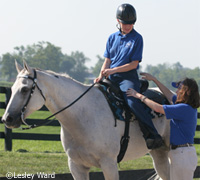 In the old days, horse trainers, breeders and managers learned their trade solely through apprenticeships or from family members. A high school education wasn’t considered necessary, much less a specialized degree. Today, internship and working student positions are still invaluable, but more and more aspiring equine professionals are opting to also earn a degree in equine studies.
In the old days, horse trainers, breeders and managers learned their trade solely through apprenticeships or from family members. A high school education wasn’t considered necessary, much less a specialized degree. Today, internship and working student positions are still invaluable, but more and more aspiring equine professionals are opting to also earn a degree in equine studies.
Why Go to College?
Horse sense can only be learned through hands-on experience with horses, but the 21st century horse industry demands more from its professionals than just skill with horses. Horse trainers, riding instructors and barn managers must have skills in marketing, communication and business management in addition to knowledge of horses. A good college equine studies program gives students the opportunity to learn hands-on skills in the barn alongside classroom lessons.
For recent graduates looking at entering one of the toughest job markets in recent history, having a wide variety of skills is an invaluable asset. Many careers in the horse industry require a degree, including nutritionists, veterinary technicians, marketers and even customer service representatives at some equine companies. Even if you want to train horses for a living, having another set of skills will give you a safety net during a down economy when training jobs are hard to come by.
Additionally, a college program has a network of professors, alumni and fellow students, which will help you land internships and jobs that you might not find elsewhere.
Which is the Degree for Me?
There are several options for equine-related degrees. The one you choose will depend on your career goals and finances.
Associate of Applied Science (A.A.S.):
This is a two-year, vocational degree that typically does not include a lot of general education classes. Students in A.A.S. programs learn the skills necessary for their chosen career without the need to complete a Bachelor’s degree.
Associate of Science (A.S.) and Associate of Art (A.A.):
These are also two-year degrees, but unlike the A.A.S., they are usually meant to be the first steps toward a Bachelor’s degree and will probably include some general education requirements in addition to courses related to the major. Completing an A.S. at a community, technical or junior college is often a less-expensive option than taking the full four years at a university.
See the list of Equine Studies Associate Degree Programs >>
Bachelor of Science (B.S.) or Bachelor or Arts (B.A.):
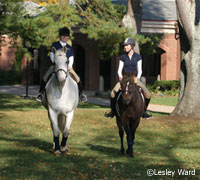 A Bachelor’s degree is designed to be completed in four years for full-time students. Degree requirements usually include extensive general education courses in addition to specialized classes. A Bachelor’s degree meets or exceeds the formal education requirements for most careers within the horse industry.
A Bachelor’s degree is designed to be completed in four years for full-time students. Degree requirements usually include extensive general education courses in addition to specialized classes. A Bachelor’s degree meets or exceeds the formal education requirements for most careers within the horse industry.
See the list of Equine Studies Bachelor’s Degree Programs >>
Master of Science (M.S.) or Master of Arts (M.A.):
Master’s degrees usually take an additional one or two years after the completion of a Bachelor’s degree. These degrees are designed to give students experience conducting original research in a specific field of study. For equine science students, advanced degrees usually fall under the category of Animal Science and require a concentration such as nutrition or genetics.
See the list of Equine Science post-graduate degree programs >>
Doctor of Philosophy (Ph.D.):
This degree is the highest level of achievement in the American system of formal education. A Ph.D. is a requirement only for advanced researchers and some university professors. Some equine veterinarians may also pursue advanced degrees in a specific area of interest.
Does Accreditation Matter?
The United States Department of Education recognizes certain accrediting agencies as “reliable authorities as to the quality of postsecondary education.” Those agencies in turn award accredited status to colleges and universities that meet a certain set of standards. You may be able to get a good education from an unaccredited school. However, in most cases your credits will not transfer should you choose to continue your education and if potential employers require a degree, an unaccredited one may not count.
If you’re seeking an accredited school, make sure that it is accredited by an organization recognized by the U.S. Department of Education. Use caution, especially with online degree programs, and use the Department of Education’s search function to make sure your chosen school is recognized.
Intercollegiate Riding
If you are pursuing an equine degree, chances are you’ll want to ride through college, too. Most colleges with equine programs will have opportunities for you to do so. Some schools that don’t have intercollegiate teams still have plenty of riding opportunities in the form of lessons and competing at open shows.
- The National Collegiate Athletic Association (NCAA) offers varsity competition for hunt seat equitation on the flat and over fences up to 3’6″, and western horsemanship and reining. NCAA equestrian teams are open to women only and require an application and/or tryout. Riders use horses owned by the host school in competition, so horse ownership is not necessary. Learn more at VarsityEquestrian.comSee the list of current NCAA equestrian teamshere.
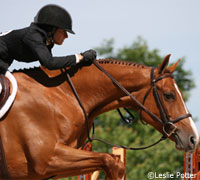 The Intercollegiate Horse Shows Association (IHSA) offers competition for riders of all experience levels, from walk and trot or jog only to 3’3″ hunt seat equitation and advanced reining. IHSA competitions use horses loaned by the host school, so riders can have the experience of competing up to the national level without owning their own horse. Learn more at IHSAinc.comSee the list of current IHSA teamshere.
The Intercollegiate Horse Shows Association (IHSA) offers competition for riders of all experience levels, from walk and trot or jog only to 3’3″ hunt seat equitation and advanced reining. IHSA competitions use horses loaned by the host school, so riders can have the experience of competing up to the national level without owning their own horse. Learn more at IHSAinc.comSee the list of current IHSA teamshere.- The Intercollegiate Dressage Association (IDA) gives dressage riders the opportunity to compete individually and as teams from Intro to First Level. Like the IHSA, IDA welcomes riders of all abilities and experience levels. Learn more at TeamDressage.comSee the list of current IDA teamshere.
- The American National Riding Commission (ANRC) differs from the other teams in that riders are permitted to compete with their own horses. ANRC exists to “promote the highest quality of educated riding and related services within schools, colleges and universities.” The program is hunt seat only, up to 3′ fences.See the list of current ANRC teamshere.
- National Intercollegiate Rodeo Association (NIRA) provides a competition and scholarships for riders in the major rodeo events. Men can compete in tie-down roping, team roping, steer wrestling, bull riding and bronc riding. Women compete in team roping, breakaway roping, goat tying and barrel racing. Learn more at CollegeRodeo.comSee the list of current NIRA teamshere.
- The United States Polo Association (USPA) has an active intercollegiate program. These programs are usually open to anyone with an interest, but may require a tryout to compete on the team. Learn more at US-Polo.orgSee the list of current USPA intercollegiate teamshere.
Resources
Equine Studies Associate’s Degree Programs
Equine Studies Bachelor’s Degree Programs
Equine Studies Advanced Degree Programs
Featured Veterinary Schools


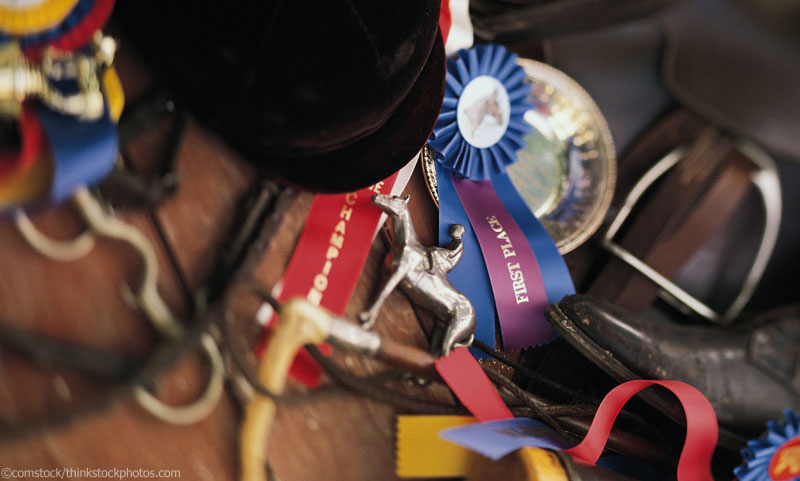
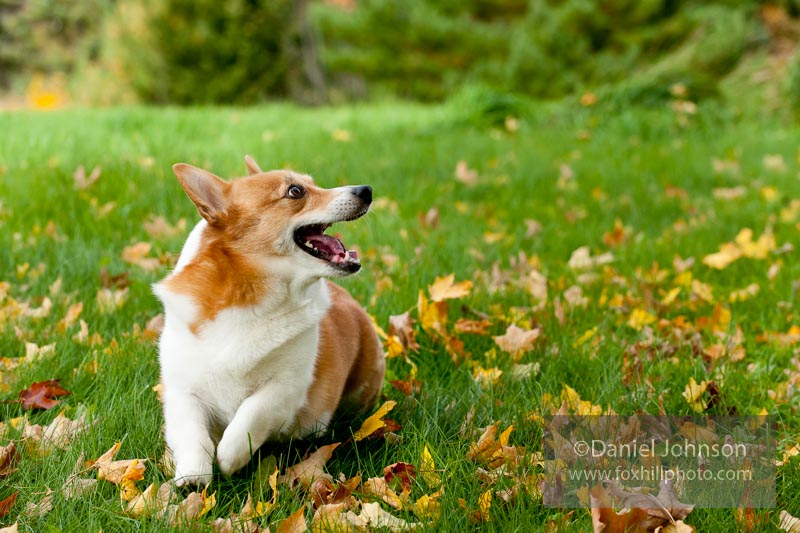
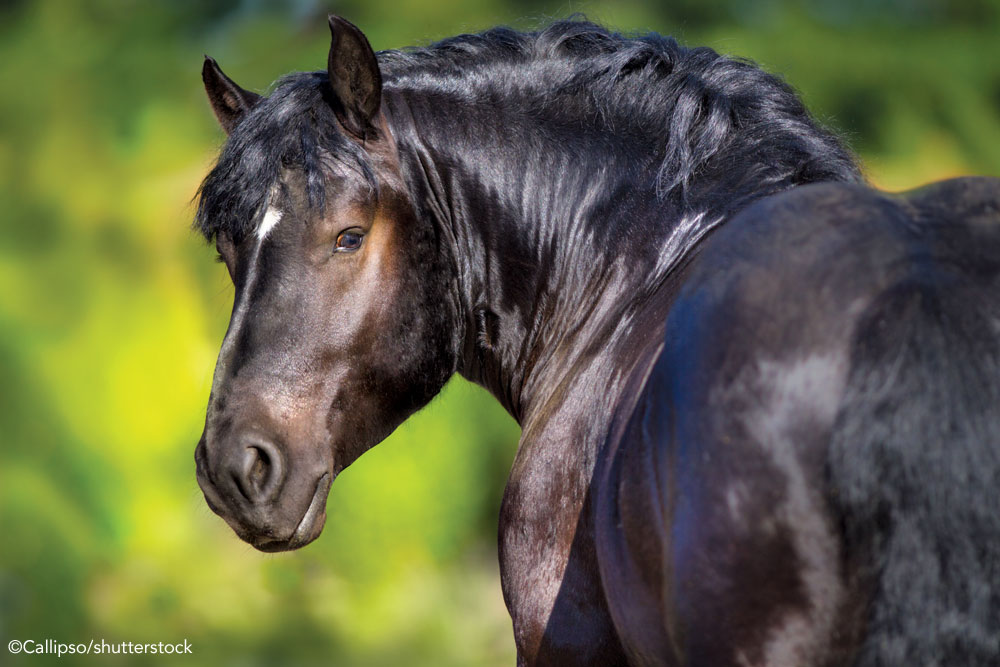

This would be so much fun. If only I had the time.
I’m in the Equine Studies program at Southern Utah University and I love it!!!!!
Honestly I think it is best to get a business degree and gain experience with horses on the side or get an animal science degree. With the amount you pay to go to these school the salary and job prospects aren’t great.
The article provides some general information, but also lacks specifics, such as what accreditation actually means…it has nothing to do with the quality of the curriculum or the qualifications of the teachers…The US Dept. of Education doesn’t oversee anything..it hires outside private companies to do accrediting, and accrediting is all about “getting federal funding”…it is not done for the benefit of the student…and learning by apprenticing does not mean you are getting correct information…often just the opposite.
When are we going to have Horse College on here? I love it on the other channels and have been anxiously awaiting something equivalent on HC.
This is a good article, but I would really love if you could add a list of colleges that offer these degrees. I have been looking around at colleges for planning purposes, and it would make it a lot easier if there was a resource of all colleges that provide equestrian degrees!
-Sarah
this was a very helpful colum but i would luv it if the colleges were named!
I live in Logan Utah and Utah State University has a 4 year equine degree program and they just built a new barn and jumping course. 😀 that is where I am going to get my degree.
If anyone is looking for an equine degree check out William Woods University in Fulton, MO! They offer three different equine degrees that are all four years. They offer H/J, dressage, Western and saddle seat for riding seats. They also have over 150 horses on campus. Check it out!
For the people that said they would like a list of schools, if you look at the very bottom of the article under the resources you will find lists for different levels of degrees. I am just happy that my college was listed. Mine was a community college and not named very often because of it.